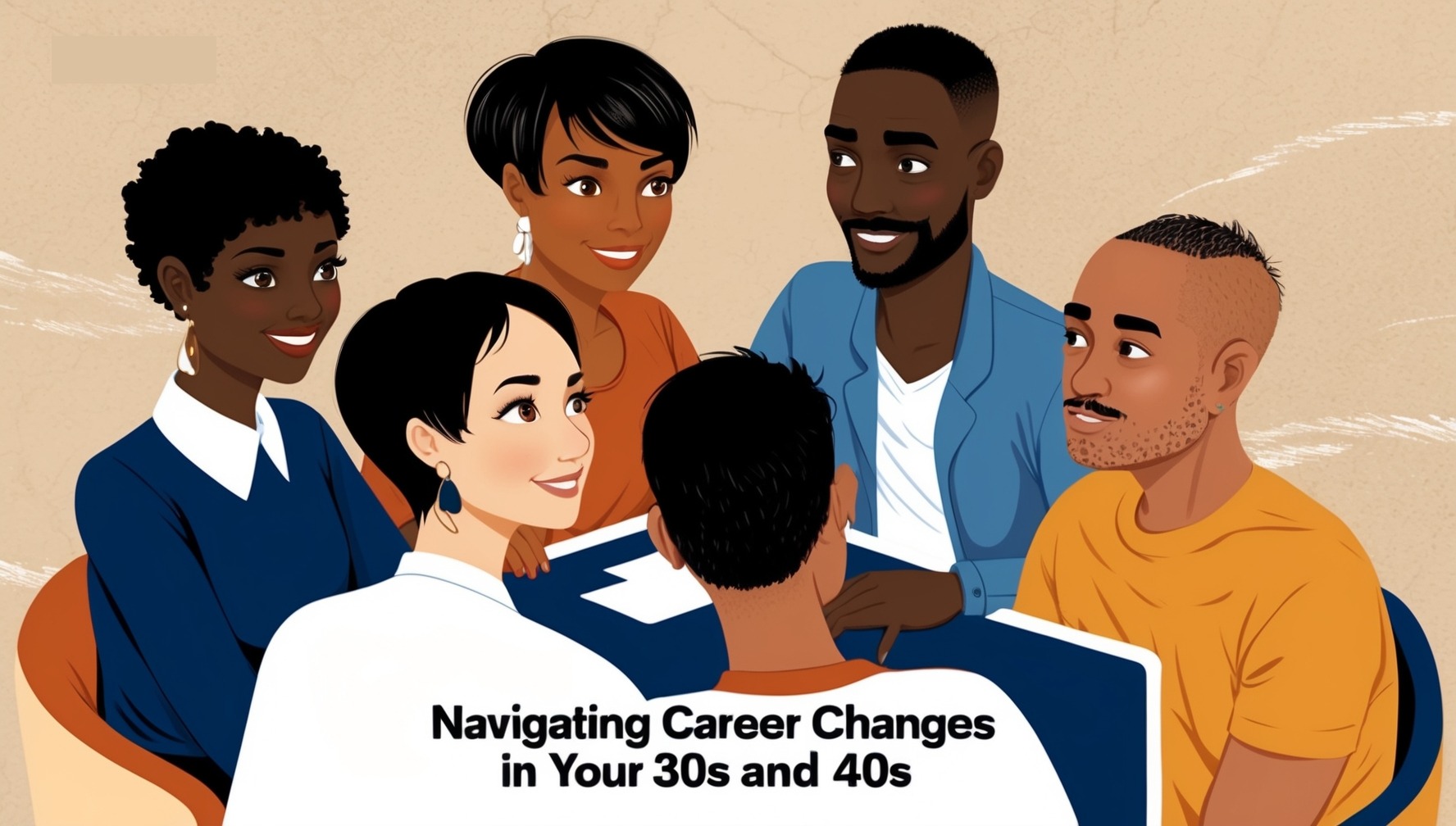Making a career change in your 30s and 40s can be both an exciting and daunting prospect. Whether you’re seeking new challenges, a better work-life balance, or a complete shift in your professional path, understanding the nuances of this transition is crucial. This article provides insights and strategies for successfully navigating career changes during these pivotal decades.
Why Consider a Career Change?
- Desire for Fulfillment: Many individuals in their 30s and 40s reassess their career satisfaction. If you find yourself feeling unfulfilled or burned out, it may be time to explore new opportunities that align more closely with your passions and values.
- Changing Life Circumstances: Life events such as starting a family, relocating, or pursuing further education can prompt a reevaluation of your career. These changes often lead to a desire for jobs that offer more flexibility or better align with your current lifestyle.
- Skill Development: As you gain experience, you may discover new interests or strengths that lead you to consider a different career path. Leveraging your existing skills in a new context can open doors to exciting opportunities.
Steps to Successfully Change Careers
- Self-Assessment: Begin with a thorough self-assessment. Reflect on your strengths, interests, and values. Consider what aspects of your current job you enjoy and what you would like to change. This clarity will help you identify potential new career paths that resonate with you.
- Research New Opportunities: Explore industries and roles that interest you. Look for trends, job growth potential, and the skills required. Informational interviews with professionals in your desired field can provide valuable insights and help you understand what to expect.
- Leverage Transferable Skills: Many skills are transferable across industries. Identify the skills you’ve developed in your current role, such as effective communication skills, that can be applied to your new career. For example, communication, project management, and problem-solving skills are valuable in various fields.
- Consider Further Education or Training: Depending on your chosen career path, you may need additional education or certifications. Engage in lifelong learning by enrolling in online courses, workshops, or degree programs that can help you gain the necessary skills and knowledge for your new career.
- Network: Building a professional network is essential when changing careers. Attend industry events, join relevant online groups, and connect with individuals in your desired field. Networking can lead to job opportunities and valuable mentorship.
- Start Small: If possible, consider starting your new career on a part-time or freelance basis. This approach allows you to gain experience and assess your fit in the new role without fully committing right away. Volunteering or internships can also provide valuable hands-on experience.
- Prepare for Financial Adjustments: A career change may involve a pay cut or a temporary dip in income. Assess your financial situation and create a budget that accommodates potential changes. Having an emergency fund can provide peace of mind during the transition.
- Stay Positive and Resilient: Changing careers can be challenging, and setbacks may occur. Maintain a positive mindset and be prepared to adapt your plans as needed. Surround yourself with supportive friends and family who can encourage you during this journey.
Conclusion
Navigating a career change in your 30s and 40s can lead to renewed passion and fulfillment in your professional life. By conducting a self-assessment, leveraging transferable skills, and building a supportive network, you can successfully transition into a new career that aligns with your goals and values. Embrace the journey, and remember that it’s never too late to pursue a path that brings you joy and satisfaction.
